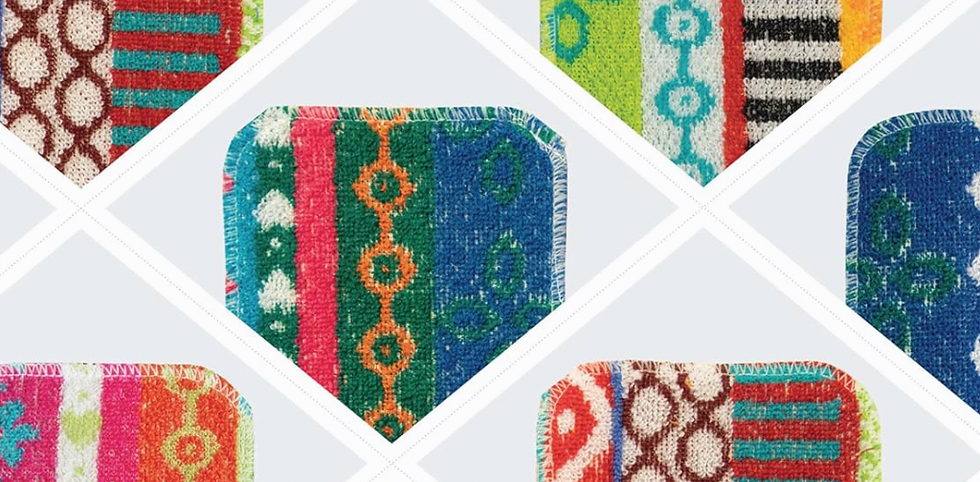Embracing the Green Wave: Why Younger Generations Opt for Sustainable Cleaning Products & Home Goods
- Isabella Schutz
- Jun 29, 2023
- 3 min read
In recent years, there has been a remarkable shift in consumer behavior, particularly among younger generations, who are increasingly choosing sustainable cleaning products and home goods. This growing trend reflects their deep concern for the environment and their desire to make eco-conscious choices. In this article, we will explore the reasons behind this shift and highlight the importance for businesses to pivot in response to this sustainable movement.
Environmental Awareness and Conscious Consumerism
Younger generations, such as Millennials and Gen Z, have shown a heightened awareness of environmental issues and a strong desire to make a positive impact. According to a survey conducted by Nielsen, 73% of millennials are willing to pay more for sustainable products, while 81% expect companies to take environmental action [1]. This generation is prioritizing sustainability in their purchasing decisions, including the selection of cleaning products and home goods.
Health and Well-being Concerns
Traditional cleaning products often contain harsh chemicals that can be harmful to both human health and the environment. Younger consumers are increasingly conscious of the potential risks associated with these products and are opting for sustainable alternatives that prioritize non-toxic ingredients. According to a study by Cone Communications, 88% of millennials believe that using eco-friendly products contributes to their personal health and well-being [2].
Ethical and Social Responsibility
The younger generations are also characterized by their commitment to ethical consumerism and social responsibility. They expect businesses to operate in an environmentally and socially responsible manner. In a global study by Accenture, 62% of Gen Z consumers prefer to buy products from companies that are sustainable and environmentally responsible [3]. By choosing sustainable cleaning products and home goods, these consumers can support brands that align with their values and contribute to positive social and environmental impacts.
Education and Information Access
Younger generations have grown up in a digital era with access to vast amounts of information and educational resources. They are more aware of the consequences of unsustainable practices and are actively seeking sustainable alternatives. This increased knowledge drives them to make more informed choices regarding cleaning products and home goods. As these younger individuals become decision-makers in households and workplaces, their preference for sustainability will continue to shape the market landscape.
The Impact
The shift towards sustainable cleaning products and home goods is not merely a passing trend; it represents a fundamental change in consumer behavior. Businesses that fail to adapt to this shift risk losing market share and relevance among younger consumers. Conversely, those who embrace sustainability and develop innovative, eco-friendly offerings stand to gain a competitive advantage and attract a growing customer base.
Why Businesses Should Pivot
Market Opportunity: The demand for sustainable products is on the rise, creating a significant market opportunity for businesses. According to the Global Wellness Institute, the global market for sustainable products is estimated to reach $22.9 trillion by 2025 [4]. By responding to this trend, companies can tap into a growing customer segment and gain a competitive edge.
Brand Reputation and Trust: Aligning with sustainability fosters a positive brand reputation and enhances consumer trust. According to a survey by BBMG and GlobeScan, 66% of millennials are willing to spend more on a product from a sustainable brand [5]. Demonstrating a commitment to environmental stewardship and social responsibility can attract loyal customers and generate positive word-of-mouth.
Regulatory Compliance: Governments worldwide are implementing stricter environmental regulations. Businesses that have already embraced sustainability will be better positioned to comply with future requirements. By proactively pivoting towards sustainable practices, companies can stay ahead of regulatory changes and avoid costly transitions later.
Innovation and Differentiation: Embracing sustainability can drive innovation within a company, leading to the development of new products, manufacturing processes, and business models. Such innovations can differentiate a business from competitors and open up new avenues for growth and profitability.
The growing preference for sustainable cleaning products and home goods among younger generations reflects a significant shift in consumer values and expectations. Businesses that recognize this trend and pivot towards sustainability will not only cater to an evolving market but also contribute to a healthier planet and society. By embracing environmental responsibility, companies can secure a competitive edge, foster brand loyalty, and play a pivotal role in shaping a more sustainable future.
Sources:
[1] Nielsen: The Sustainability Imperative
[2] Cone Communications: The 2015 Cone Communications/Ebiquity Global CSR Study
[3] Accenture: The Accenture Strategy 2019 Consumer Survey on Circular Economy
[4] Global Wellness Institute: Global Wellness Institute Releases 2020 Global Wellness Trends Report
[5] BBMG and GlobeScan: The 2015 Conscious Consumer Study



Comments